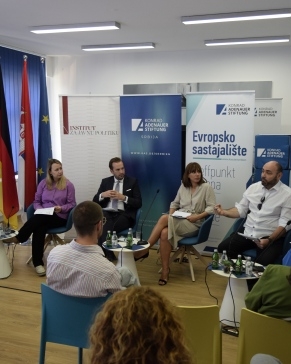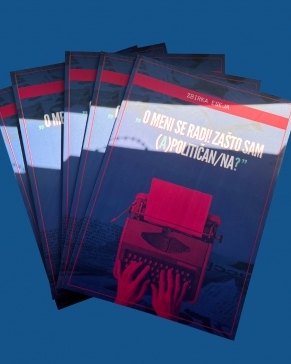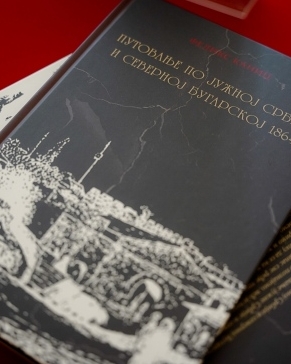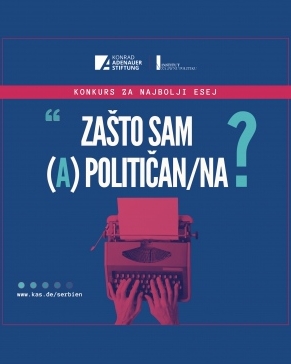
GAVRILO PRICIP IS NOT A MARTIAN
Interviewed by Edina Kamenica
At the recently finished International Conference “The position of the First World War in European history”, hosted by the Institute for History (Sarajevo), supported by a number of similar institutions in Europe, a very huge interest has been shown for the arrival of PhD Nikola Samardžić, professor of Faculty of Philosophy in Belgrade, History Department. Unfortunately, the real reason of that existing interest was not because of his numerous books and studies, but because he was one of the few conference participants from Serbia. Samardžić expressed sorrow because there were not more of his colleagues. On who he though, we asked first prof. Samardžić
- I though on the absent colleagues from Serbia, because Serbia was an important factor in the events that were discussed at this conference, which was followed by a media lynching, from the idea of maintain it, until today. That was encouraged by some of my colleagues from Serbia who considered that this is their chance to highlight themselves to the domestic public opinion in the way that they perceive Serbia today. They see Serbia today as a Serbia in 1914, and generally speaking, it is embarrassing when the part of the public forces you to live in 1914 and today is 2014th.
Life experience
Something very different is lack of ability of our public and scientists to participate in the contemporary process which is important and which imposes certain ethical obligations and that is a process of dealing with the recent past and establishing very close and friendly relations with the former Yugoslovenian nations and erasing of all boundaries that exists among us. The meaning of the conference is to encourage scientists and public, from both Bosnia and Serbia to offer new interpretations, not only new facts.
- Did you hear them here?
- Interpretation of the past implies a certain life experience and in that sense, I think that we will reveal some important differences in interpretations.
- It is obvious that you don’t want to comment resistance in offering new interpretations at all?
- These resistances party originate from Bosnia and Herzegovina, they are not originally related to the Serbian science or culture. I think now on the editor-in-chief of the newspaper that came from here and that conducts policy from the early 90s (Ljiljana Smajlovic, editor-in-chief of Politika, author note). On the other hand, you have to understand the nowadays nervousness that exists in Serbia, because there is always a possibility to accused us for responsibility for the beginning of the First World War, because of the events that occurred in 90s. And that war has begun with the Austro-Hungarian attack on Serbia, caused by the assassination in Sarajevo. Okay, maybe this is not favored event for the Serbian public, science or culture, perhaps the individuals and institutions have not been able to accept the complexity of our memory on the hundredth anniversary of the assassination, although today Serbia, Bosnia and Austria are not the same countries and the same societies as before hundred years. After all, the First World War was not ended by the destruction of the Austro-Hungarian empire, it was ended with disappearance of Serbia, disappearance of Montenegro, establishing of the new states, launching the new integrations and that experience today is very valuable to us, but we are forgetting it in the light of the assassination, which is a minor event for us, as the same or the most closest nations. Unfortunately, in recent years we are ready to observe our relations exclusively, or almost exclusively, in the light of the conflict, although there are processes that are very encouraging in this respect.
- Very important facts linked you with the First World War?
- That memory is very complex, as well as any other. I mentioned that my grandfather went as a volunteer in Serbia with his two brothers, just from here, from Sarajevo. He was not born here, but a huge part of his life he spent in Sarajevo. He had his own factory. I don’t know exactly where, a little bit of memories left in the family, but that produced a headgear. Behold, the only item that left from my grandfather is the ashtray with the picture of Franz Joseph, against whom he actually fought in the First World War, when his brother was killed. That’s why I am talking about these memories and experience as a very complex and because of that there is no process from that time that we should considered one-sided, or linear, seeing that all of us from this area, as a nation, are linked with multiple connections.
- I cannot skip over the next question. How do you look on a Gavrilo Princip?
- Try in this particular environment, which is the focus of the hundredth anniversary of the assassination, to observe Bosnia and Herzegovina as an international entity, defined by peace agreement in Karlovac in 1699, and try to observe Gavrilo Princip as someone who was born within that entity. Very interesting thing is that Bosnia and Herzegovina relatively early entered in the international law documents as a territory that had some important regional role. At the end of 17th century that was a defense of Dubrovnik from Republic of Venice. According to that, you cannot consider Gavrilo Princip as a Martian. He was not even a Serb, he was born in Bosnia and Herzegovina. On the other hand, you cannot consider questions about national and political affiliation from today’s perspective. Many Serbs were not aware that they are Serbs and Bosnians felt as a Serbs, Croats or Yugoslavs.
- Once they even haven’t any choice…
- For instance, Hamdija Kreševljaković, who is one of the most important Bosnians in your cultural history, declared himself as a Croat. A long time has passed, these hundred years are the richest time in human history, so full of events and possibilities of their interpretations and memories.
- How you therefore, look on a Princip?
- Everyone has a right for his own interpretation, but I offered one which will be closer to your readers and because of that interpretation they could think about Princip as a local man who became a victim of a very complex international relations, therefore, not only the local Serbian policy. On the conference I talked about processes in international relations that have been deteriorated over time due to the appearance of a new countries such as Italy, Germany, Serbia, Montenegro, Bulgaria and Romania in the context of relations between Serbia, Bosnia and Austro-Hungarian, about changes in Serbian policy and about the role of France and Russia which agitated Serbia against Bosnia and Austro-Hungarian, in the same way how today Russia and France agitate Serbia against former Yugoslovenian neighbors, and even against European Union. Although France is a member of EU, be sure that everyone how spread anti-European policy today have support of the French and Russian diplomacy. If there are similarities with the past hundred years, that similarities are really striking.
Terrorist or a murder
As a historian, I always take into account the existing interpretations of every event and in the meantime they become a history. Today we can still feel certain contradictions, exclusively as a result of a historical inertia or some natural interests, so the Germans or Austrians will always call Princip a terrorist, although its not less strong or important to call him a murder. And analysis and interpretations also leads us to a very interesting insight, not only into these events but also into very deep consequences of that act.
- According to you, which misconception about the Great War is the most widespread? Is it, perhaps, the story of secret societies and their “sponsors”?
- You may have offered the answers yet, but the most serious prejudices that are affecting all of us are the ones that come from the relationships established over the past several decades and which, however, do not have too much to do with the situation that preceded the Sarajevo assassination. I mean on totally disrupted inter-ethnic relations in the former Yugoslavia, which are manipulated from the outside and in that manipulations participate individuals and institutions from abroad. In particular, I also mean that the current manipulations with the interpretations and memories related to the assassination in Sarajevo are pretty miserable reflection and confirmation of the inability of certain political and intellectual circles in Russia, in France, or in Germany to overcome their own bad qualities.
- On the conference was a question: are we closer to the reconciliation if we know more?
- About First World War decades ago we know enough. One of the most important studies about it is a Vladimir Dedijer’s study and from the forties’ of the last century the historians did not found anything particularly significant about the War. The new facts that we found in last few years will not, in particular, change the interpretation of this event, as far as Princip, including Mustafa Golubić who is also mentioned…they are lost in the flow of a history that destroyed themselves too.
- You mentioned encouraging processes in relations between our two countries…
- I thought (laughs, author note) on my attendance at this conference.




